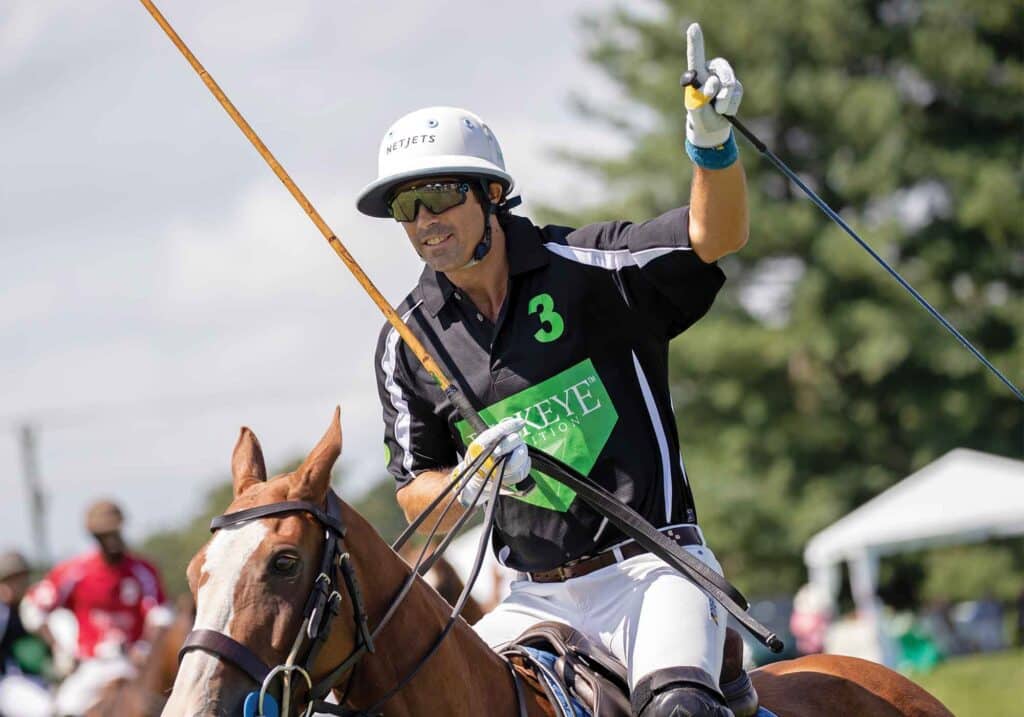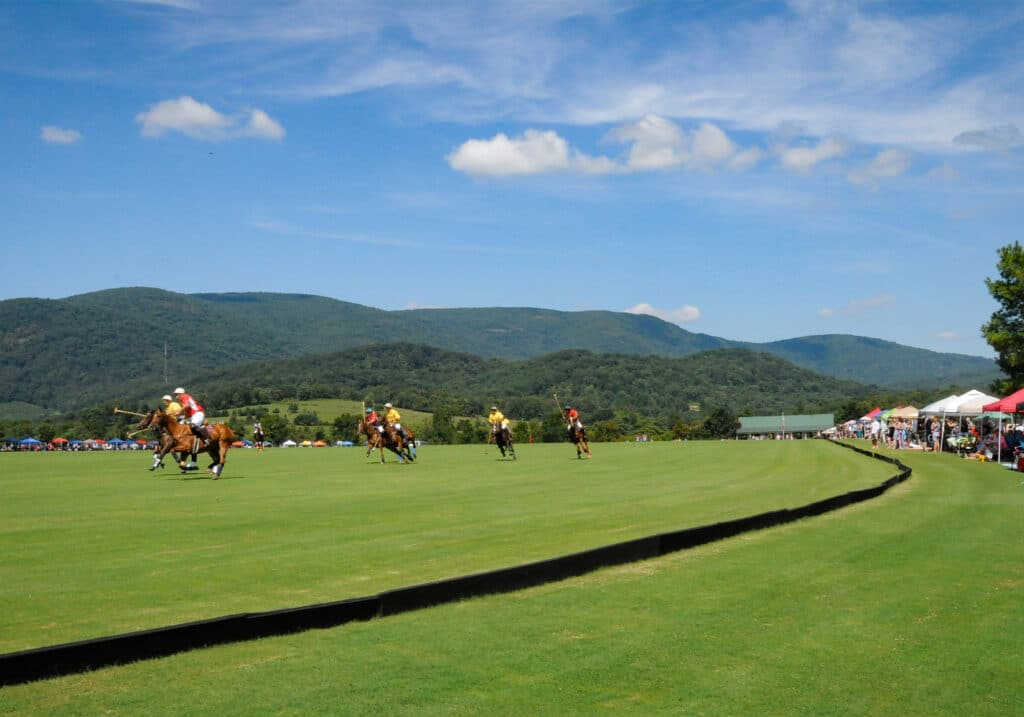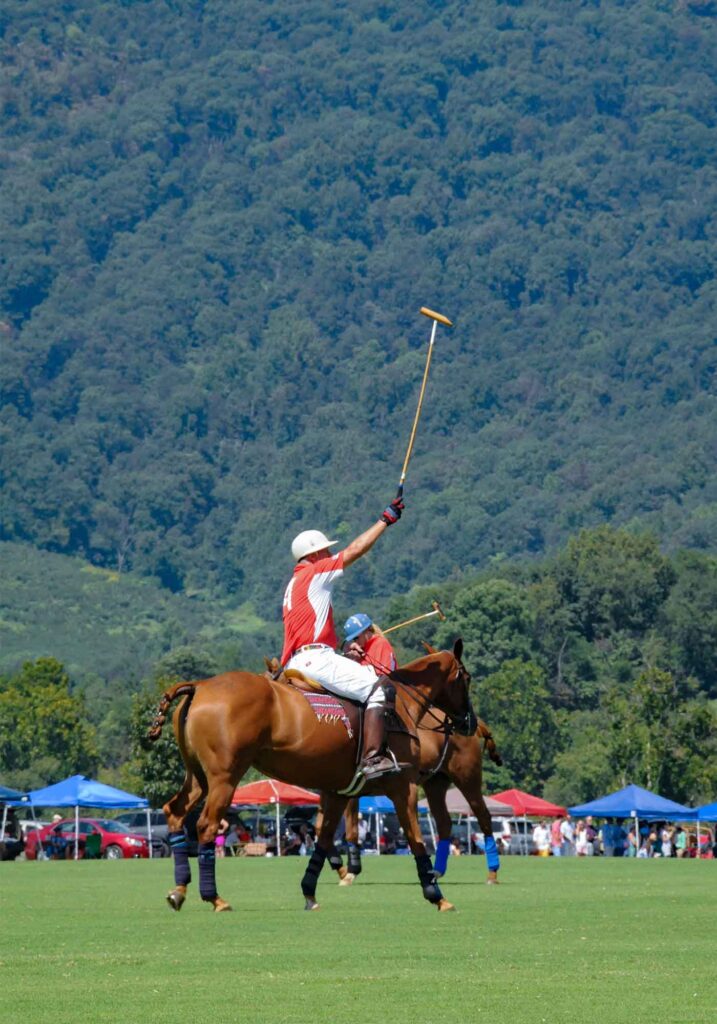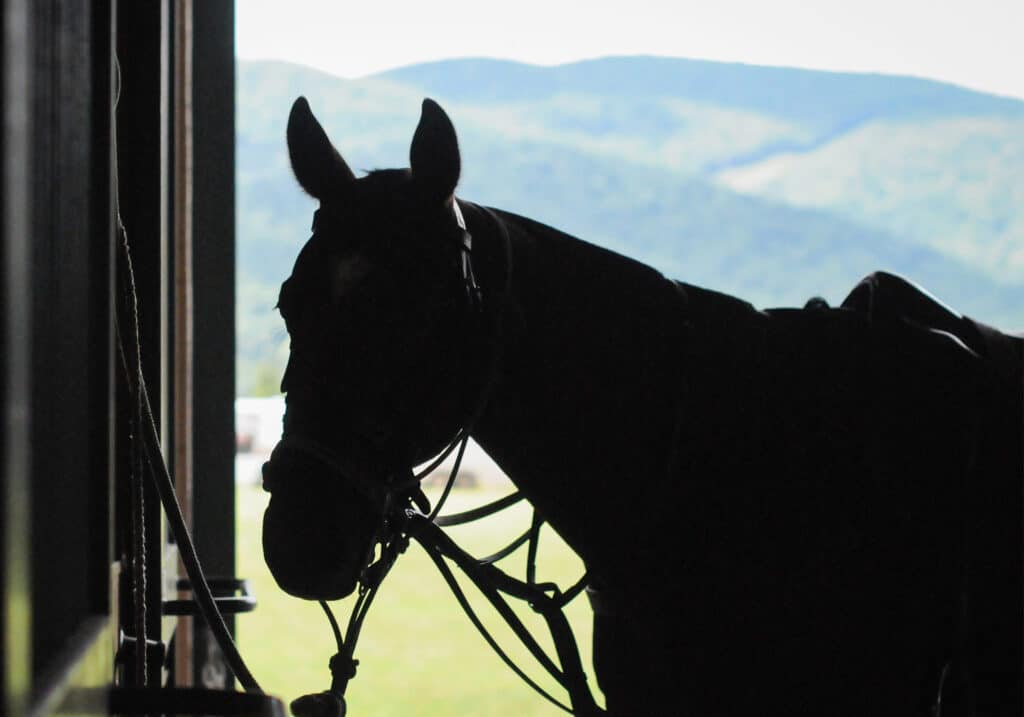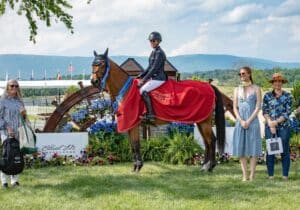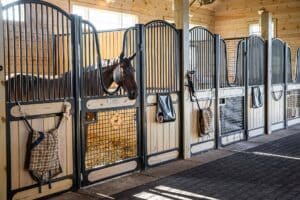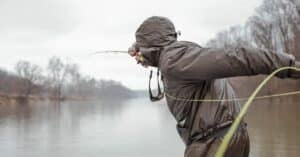The coming seasons are looking strong for the UVA Polo Teams. After a challenging and rewarding school year, both the men’s and women’s polo teams from the University of Virginia brought home gold and National Championship titles during the 2022 season. Each team worked hard for their double win. The UVA women’s team played a strong game to triumph over the University of Kentucky in the U.S. Polo Association National Intercollegiate Championship tournament. They worked together seamlessly, scoring goal after goal for an impressive victory of 17-9.

The UVA men’s polo team followed the women’s victory in their own final against the University of North Texas. The fast-paced game was intense and evenly matched for the first half before UVA surged ahead in the fourth “chukker”—the polo term for period.
The Virginia polo ponies brought home trophies of their own, with Bella winning Women’s Best Playing Pony and Nemo winning Men’s Best Playing Pony. The UVA ponies collectively won Best Playing Strings, the group of horses ridden by the team, in both the men’s and women’s divisions. After two years of canceled national tournaments due to COVID-19, Virginia Polo sport teams proved that patience and hard work pay off.

The History of UVA Polo
Despite the impressive accolades earned in this historic sport of kings, Virginia Polo is an organization that remains committed to riders of all backgrounds and levels. While sports like basketball or baseball often take center stage at the college level, Virginia Polo takes pride in building the love of equestrianism among UVA students.
The organization also sports an interesting and spirited history. In the 1950s, the original members of the men’s Virginia Polo team practiced on an airstrip that they mowed by hand, and they borrowed horses from community members to compete in local matches. While much has changed since those early days, hard work and tenacity remain core values of the Virginia Polo team.
Virginia Polo has made enormous strides since its humble beginnings. It has remained a student-run organization with a clearly stated mission to “instill in each student the merits of responsibility, hard work, dedication, the rewards of fellowship, working as a team and the ability to compete in an intercollegiate sport on the national level. These are valuable lessons that endure in the students’ personal and professional lives after college.”
Indeed, it is the students who deliver this mission with their spirit and energy, participating each weekend in caring for the horses and teaching amateur riders as well as the more experienced. Students play a crucial role in keeping the equestrian spirit and sport alive at. the university.
Polo Sport Basics
Polo mounts, while traditionally called ponies, are in fact full-sized horses. To be chosen and trained as a polo pony, the horse must have a keen interest in the polo sport, because it challenges them to charge and potentially knock into other horses, something they don’t naturally do, and to be nimble and quick.
Essentially, they must enjoy the polo sport, or they won’t be drafted into playing. They must become used to the swinging of the mallet at high speeds, and riders must be careful not to hit a horse’s legs during play. To help riders avoid this, the horses’ ankles are wrapped in bright colors for visibility. Both courage and good communication between horse and rider must exist during the daring game of polo. It is as exciting to play as it is to watch.
Both courage and good communication between horse and rider must exist during the daring game of polo.
Polo itself is an ancient sport, tracing its origins all the way back to before 100 C.E. A match lasts about two hours, broken up into seven-minute “chukkers” and a 10-minute halftime break. Today the sport is common among the upper echelons of society around the world, from royals to rock stars. Virginia has several polo teams that play weekly bouts during the summer.
Virginia Polo Matches to Watch
In Central Virginia, King Family Vineyards’ Roseland Polo Club hosts Sunday polo where attendees can view exhibition matches and picnic on the grounds while enjoying a glass of the vineyard’s refreshing Crosé rosé or polo-inspired Seven, a Petit Verdot which features a polo player design on the bottle. In northern Virginia, one might find Argentinian superstar and lifelong polo player Nacho Figueras playing against equally famous friends in the Virginia United Polo League.
Training the Polo Teams at UVA
Each fall semester at UVA, Polo Boot Camp offers students the chance to spend every Saturday throughout the semester learning polo riding skills from the coach and general manager, Lou Lopez. Interested college and high school students learn about the sport, including how to saddle a polo pony and how to test their hand-eye coordination with a bamboo mallet from the tack room. Meanwhile, more experienced riders hone their skills to advance their riding to the next level, learning to play more aggressively and more precisely. Both varsity and club players participate in teaching new learners. King Family Vineyards alos offers lessons at their Roseland Polo School.
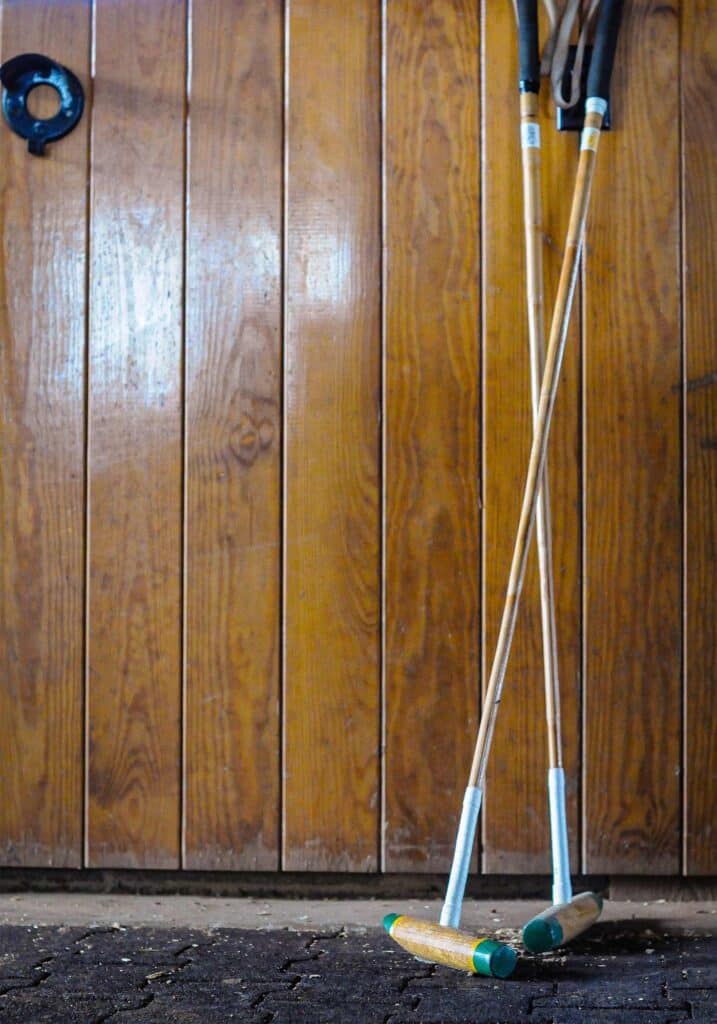
Beginner players spend the first semester learning the basics of polo sport and horsemanship, and at the end of the semester they may find themselves invited to join the team. Each team member is charged with the shared responsibility of caring for the horses and ensuring that the student-run organization operates smoothly. Students learn to poultice injuries, wrap legs before practice and create training schedules for the horses to reach peak performance. This shared sense of care and community inspires students to realize their potential in the arena and beyond.
As important as a quality field is to football and soccer players, well-kept facilities and fields are crucial to equestrian sports. The facilities for the UVA polo sport program are luxurious compared to those they had in the 1950s, but the shared sense of ownership and responsibility remains central to the team from the facilities themselves to the care of the horses.
During fall, winter and spring months students welcome and enjoy the opportunity to contribute to the care of the horses and upkeep of the facilities. Summer brings about a more relaxed off-season for the collegiate team. Most students are back at home, studying abroad or off working a summer internship, but others come in waves for a week or two to help keep the horses in shape or stay throughout the summer to train alongside professionals.
Polo Field Practice
On typical July mornings, the sun crests over the mountains, ahead of hot, humid days. On those mornings, a university student is already riding “sets,” riding one horse while leading three others by their halters to work all four in tandem. Local polo legends practice “stick and ball,” hitting the ball from the saddle as they weave around the riders doing sets. The relaxed summertime pace allows the horses to rest and recuperate on a light training schedule before the collegiate schedule starts back in the fall.
Team members wishing to compete during the off-season trailer back and forth out to King Family Vineyards to practice with the Roseland Polo team. Some students help groom and care for the horses at King Family Vineyards while some of the most advanced players are paid to compete as professionals. The summer season for Roseland Polo at King Family Vineyards perfectly complements the academic competition calendar, allowing students to bring their own horses to compete at the vineyard property in the sport of polo during the off-season.
Support Among the Polo Community
While the UVA Polo Teams benefit from the guidance of Virginia Polo, the organization is not sponsored by the university. Instead, it is funded solely through generous donations from supporters, parents and alumni. Support from these provides every team member the opportunity to play polo affordably. Additionally, all 50 polo ponies were donated by polo players from around the country, often UVA alumni. The program receives generous support from fans near and far.
Community and teamwork make up the heart and soul of the Virginia Polo Team. From their humble origins to their recent national prestige, Virginia Polo has a storied reputation as a place where equestrians can gather, learn and grow as athletes and as individuals.
Read more Virginia Equestrian and Sporting Life articles on other polo leagues in Virginia in our Life & Style section, find tailgating inspiration in our Style & Culture section and discover wonderful places to stay in Virginia Hunt Country like the Goodstone Inn and the Salamander Resort & Spa. Check out our Events Calendar for even more wine and country experiences like the Upperville Colt & Horse Show, Gold Cup Races and the Montpelier Hunt Race. ~
ABBY MEREDITH ARMISTEAD is a lifelong equestrian, an artist, and a Double Hoo. Abby spends her time freelance writing and running her stationery company.
OANA MOORE is is a published photographer living in Crozet. Over the past few years, Oana has photographed numerous polo tournaments for the United States Polo Association as well as recreational polo matches played in the Charlottesville area. She has a deep love for horses, enjoys riding and taking care of her own three horses.





